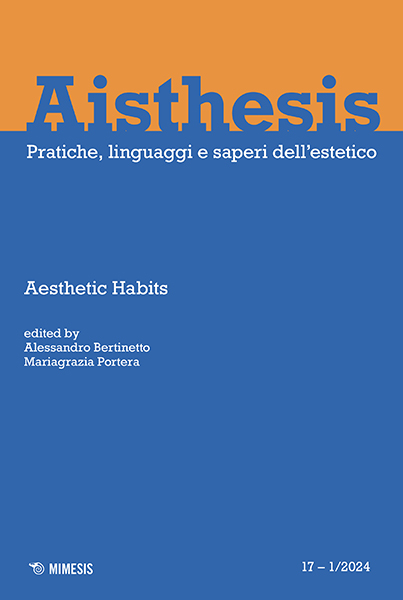Wölfflin and Wiesing. Style as a Principle of Anthropological Thinking
DOI:
https://doi.org/10.7413/2035-8466020Parole chiave:
Phenomenology, philosophical anthropology, style, formal aesthetics, Heinrich WölfflinAbstract
The question of this paper is: Does the concept of style represent a principle of anthropological thinking? The first step is to establish a typology of traditional theories of style that assert a connection between man and style. The purpose is to identify a common paradigm to stand out from it in a second step. The thesis is namely that in the traditional approaches, no primary interest is taken in the question What is man? but rather the question What is style? Instead, following Heinrich Wölfflin and Lambert Wiesing, a formal aesthetic concept of style will be discussed. In his work, Wiesing adapts the stylistic concepts of Painterly and Linear (Wölfflin) to be able to phenomenologically describe the plurality of human-world relations. This approach should be made explicit as a systematic contribution to the discussions at the crossroads of aesthetic and anthropological questions.


